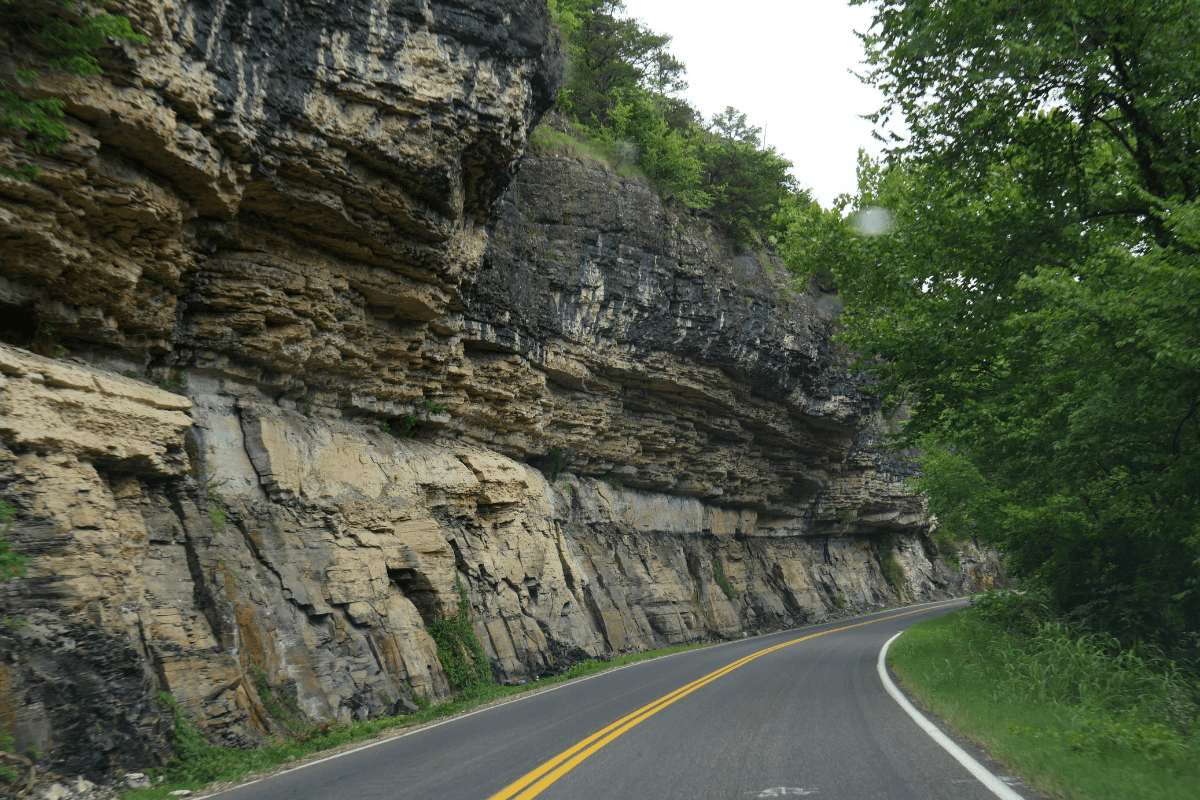When that final school bell rings at 3:15 PM across Tulsa's 71 public schools, over 33,000 students suddenly need somewhere to go, and parents everywhere feel that familiar panic. Whether you're juggling work schedules, trying to keep kids engaged, or simply hoping they don't spend the afternoon glued to screens, finding the right after-school program can feel like solving a Rubik's cube blindfolded. The good news? Tulsa offers an impressive array of options ranging from completely free library homework clubs to elite athletic academies, with something for every family's needs and budget.
The big picture: What you're working with in Tulsa
Let's start with some real talk about the after-school landscape in Oklahoma. About 73,000 children participate in after-school programs statewide, but here's the kicker… an estimated 180,000 more kids remain unsupervised after school, with another 226,000 students who would join programs if they could actually access them. In Tulsa specifically, families can choose from over 100 different programs with monthly costs spanning anywhere from $0 to $500+ depending on whether you're looking at basic supervision or specialized instruction.
The reality is that geography matters a lot in Tulsa. According to BEST Tulsa, a child born in South Tulsa will statistically live 15 years longer than one born in North Tulsa, which makes equitable access to quality programming especially important. Federal funding provides $13.5 million statewide for community learning centers, though recent federal funding freezes affecting $1.4 billion nationally have created some uncertainty for programs serving the most vulnerable populations.
Financial assistance is more available than many parents realize. If you're a family of four earning up to $6,377 monthly, you qualify for Oklahoma's Child Care Assistance Program, with copayments ranging from zero to $473 maximum. Don't assume you won't qualify… it's worth checking.
The heavy hitters: Major community organizations that won't break the bank
When you're looking for reliable, affordable after-school care that covers the basics without fancy frills, these three major organizations form the backbone of Tulsa's programming. They've been around long enough to have their systems down pat, offer multiple locations for convenience, and price their services to be accessible to working families. Think of them as your starter programs… solid, dependable options that handle the fundamentals really well.
YMCA of Greater Tulsa: The reliable workhorse
The YMCA operates 15 locations throughout the metro area, making it Tulsa's largest after-school provider. Their signature GO Club program works directly with school districts, offering before-school care starting at 6:30 AM for $15-20 weekly and after-school programs until 6:00 PM for $40-65 weekly. That's honestly pretty reasonable when you consider that each location provides over 900 group exercise classes weekly.
What sets the YMCA apart is their youth sports pricing. We're talking $50 per child per sport for household members, which is a steal compared to private leagues. The Downtown YMCA at 418 S Main Street opens at 5 AM on weekdays for early birds, while the W.L. Hutcherson Branch on Pine Street specifically serves North Tulsa's underserved communities. Their "Membership For All" scholarship program accepts applications with proof of income at any location, so don't let cost be a barrier.
Boys & Girls Clubs: The incredible $10 deal
Here's where things get almost too good to be true. Boys & Girls Clubs charge just $10 annually for ages 6-18. Yes, you read that right… ten dollars for the entire year. Their Power Hour homework assistance runs Monday through Friday from 3:00-7:00 PM, plus they offer specialized programs like college prep and workforce development for older teens.
The Junior Staff program engages ages 13-18 in leadership development, while Boeing partnerships bring unmanned aerial vehicle STEM experiences to members. Summer registration opens March 25th annually, and clubs operate as youth centers where members can come and go rather than strict daycare-style supervision.
Tulsa Parks and Recreation: The local government option
Tulsa Parks manages six community centers plus two specialty facilities throughout the city, from the Centennial Center in Veterans Park to the Reed Park Community Center on South Yukon Avenue. Each location features fitness facilities with weight machines, full-court gymnasiums, and dance studios. All patrons ages 10 and older must obtain a free Tulsa Parks ID card, with non-residents paying 25% extra fees.
The WaterWorks Art Center at 1710 Charles Page Boulevard offers specialized arts programming, while Oxley Nature Center provides environmental education. Registration happens through tulsaparks.recdesk.com, and they offer kids' day camps during all school breaks.
Sports programs: Burning energy and building character
Sports dominate the after-school conversation for good reason… they provide physical activity, teach teamwork, and give kids a healthy way to work off the day's frustrations. Tulsa's youth sports scene is remarkably diverse, with options for every skill level from "I've never held a ball" to "I dream of college scholarships." The key is finding the right balance between competition and fun, especially for younger kids who just need to move their bodies and learn basic skills.
Soccer takes the crown
Soccer absolutely dominates Tulsa's youth sports scene, and for good reason. Metro Tulsa Soccer Club operates recreational and special needs leagues at various locations, emphasizing their "Where Kids Come First" philosophy regardless of where you live. The YMCA soccer leagues run spring and fall seasons for ages 3-10, focusing on skills development with registration fees that include team shirts and referee costs.
SoccerCity Tulsa provides year-round indoor leagues and their Lil' Kickers program for early childhood development. Tulsa Parks offers co-ed leagues at Sumerglenn Plaza with scholarships available for qualifying families.
Basketball gets competitive
Basketball programs range from recreational fun to serious skill-building. The YMCA Thunder Basketball League serves as the exclusive partner with the Oklahoma City Thunder, covering ages 3-14 with both recreational and competitive divisions. i9 Sports innovates with one-day weekly commitments that combine practice and games, eliminating tryouts while ensuring every child plays every game.
Baseball and softball classics
Oklahoma Diamonds operates 35 fields across LaFortune, Hilti, and Savage Parks. Programs progress from T-Ball for ages 3-5 through competitive leagues for ages 11-12, with a special Challenger League serving players with physical or intellectual challenges. Tulsa National Little League, established in 1981, recently sent teams to the 2025 Little League World Series while developing "major league people" ages 3-13.
Swimming: From splash time to competitive strokes
Swimming instruction spans an impressive range. Miller Swim School offers warm-pool facilities for children as young as 6 months through adults, while the YWCA provides competitive Tsunami youth teams for $65 monthly. Life Time Fitness locations in Midtown and Jenks offer rolling enrollment without session registration requirements.
Here's something pretty amazing: the YWCA provides free swimming at Lacy Park Pool for ages 4-13 in specific zip codes (74106, 74110, 74115, 74117, 74126, 74127, 74130), directly addressing transportation and cost barriers for underserved communities.
Arts and culture: Unleashing creativity
The arts scene in Tulsa is legitimately impressive, with world-class museums and organizations offering programming that rivals much larger cities. These aren't just "finger painting and macaroni necklaces" activities… we're talking about real skill-building in music, theater, and visual arts that can genuinely shape a child's future. Many programs also provide scholarship opportunities, making high-quality arts education accessible regardless of family income.
Music that won't cost you everything
Music education offers both premium and completely free options. Sistema Tulsa Community Youth Orchestra stands out as completely free programming for grades 7-12, meeting at Boston Avenue Church with multiple ensemble levels. Their Advanced Symphony Orchestra rehearses Thursdays 5:00-7:00 PM, while beginner groups meet Monday/Wednesday 5:30-6:30 PM. Tulsa Public Schools students can borrow instruments at no cost, which removes a major financial barrier.
Theater for budding performers
Clark Youth Theatre anchors theatrical education from their 4825 S. Quaker Avenue location, offering Saturday passes for $210 that provide unlimited class access. Nine free main stage productions annually welcome performers ages 5-18, with summer camps running $300 for two-week sessions. The Penguin Project creates inclusive theater opportunities for special needs students, while homeschool-specific classes meet Tuesday afternoons with scholarships ensuring no child faces financial barriers.
Visual arts at world-class venues
Philbrook Museum's Camp Philbrook serves ages 3-14 with morning or full-day options, including before-care from 7:30 AM and after-care until 5:30 PM. Programs currently run from the former Ahha building at 101 E Archer Street during museum reconstruction. Gilcrease Museum offers mixed-media summer camps for ages 5-12, while WaterWorks Art Center provides year-round ceramics, painting, and jewelry classes.
STEM and academics: Building tomorrow's leaders
Academic support and STEM programming have become increasingly important as parents recognize these skills will be essential for their kids' future success. Tulsa offers an impressive range of options from basic homework help to advanced robotics competitions. The challenge is finding programs that make learning engaging rather than feeling like more school, while still providing the academic boost many kids need to stay competitive.
Science and technology programs
The Tulsa Regional STEM Alliance leads coordinated STEM education from their 5005 S. Darlington headquarters, delivering 191,000+ STEM experiences in 2024. Their Me & My Math Mentor program places 80 mentors at 13 school sites serving 228 students weekly. Discovery Lab at 3123 Riverside Drive charges just $10 daily admission for interactive STEAM exhibits and maker space activities.
Code Ninjas South Tulsa gamifies programming through belt progression systems, with camps costing $225-250 weekly. FIRST Robotics programs begin with LEGO League Discover for PreK-Grade 1, advancing through Tech Challenge for high schoolers.
Academic support that actually works
Seven Tulsa City-County Library branches host after-school homework clubs for grades 3-8, providing free one-on-one assistance in 30-minute weekly sessions from 3:40-7:30 PM depending on location. Online Homework HelpNow offers live tutoring 2-11 PM daily in English and Spanish.
Tulsa Public Schools operates the Champions After-School Program at 26 elementary schools, expanding for the 2025-26 academic year. Programs run from dismissal until 6:00 PM for $40-65 weekly, incorporating art, science, language, and motor skills development.
Safety and quality: What to look for
Safety standards and quality measures aren't the most exciting topic, but they're absolutely crucial when you're entrusting someone else with your child's well-being for several hours daily. Oklahoma has specific requirements that programs must meet, and understanding these standards helps you ask the right questions when evaluating options. Don't be shy about requesting this information… any quality program will be happy to share their credentials and safety protocols.
Oklahoma requires programs operating 30+ hours weekly to meet specific licensing standards. All employees complete FBI and OSBI fingerprint-based background checks costing $58.25 every five years. Master teachers need high school diplomas plus two years experience or associate degrees with 12 credit hours in child development.
The state's 5-Star Quality Rating system evaluates curriculum, outcomes, environments, and professional development. Only one Tulsa program (Favorite Time Academy) currently holds national Council on Accreditation status, which gives you an idea of how rare truly top-tier accreditation is.
Quality indicators to ask about:
- Staff-to-child ratios by age group
- Background check completion dates
- Curriculum and daily structure details
- Emergency procedures and protocols
- Parent communication methods
Transportation realities
Transportation can make or break your after-school plans, and it's often the detail that gets overlooked until you're scrambling to figure out how your child gets from Point A to Point B. Tulsa's public transportation system has limitations, and not every program offers pickup services, so having a solid transportation plan is essential before you commit to any program.
Transportation can make or break your after-school plans. Tulsa Public Schools provides free bus service for elementary students living 1.5+ miles and middle/high schoolers 2+ miles from school. High schoolers can ride MetroLink free with valid student IDs. Public transit operates Monday-Saturday with limited Sunday service, supplemented by MicroLink on-demand options in specific zones.
Some programs like Motion Tulsa offer pickup services at additional cost, while 21st Century Community Learning Center programs often include transportation from partner schools.
Geography matters: Finding programs in your area
Tulsa's neighborhoods vary dramatically in terms of available programming, and understanding these differences helps set realistic expectations for what's accessible in your specific area. North Tulsa has fewer options but often provides more comprehensive support services, while South Tulsa offers greater variety but at higher price points. East Tulsa benefits from culturally responsive programming, and suburban districts maintain their own distinct ecosystems.
North Tulsa programs specifically address concentrated poverty and limited resources. Tulsa YouthWorks operates a 30-week after-school program serving K-5 students from low-income homes, providing both snacks and dinner while running 3:45-6:30 PM Monday through Thursday. The I AM A Promise program at Antioch Baptist Church employs certified TPS teachers for academic support plus Spanish, cooking, and dance enrichment.
South Tulsa enjoys greater program density and variety, with Life Time South Tulsa offering premium summer camps with STEAM activities and field trips. Multiple YMCA locations provide comprehensive programming, while private providers concentrate in this area offering specialized instruction, though costs often exceed $200 monthly.
East Tulsa's diverse population benefits from targeted cultural programming. The Hispanic Resource Center at Martin Regional Library (2601 S. Garnett Road) offers bilingual storytime, translation services, and connections to scholarship opportunities.
Making the right choice for your family
Choosing the right after-school program requires balancing your child's interests with practical realities like budget, transportation, and scheduling. The "perfect" program on paper might not work if it's across town during rush hour, while the convenient option might not challenge your child appropriately. Start with your non-negotiables and work from there, remembering that you can always switch programs if the first choice doesn't work out.
Start by honestly assessing your child's interests, family budget, and logistical capabilities. Free and low-cost options like library homework clubs, 21st Century Community Learning Centers, and Parks Department activities provide essential supervision and enrichment without financial strain. If you're earning below median income, apply for Child Care Assistance immediately… it could cover most program costs.
Research program quality carefully. Ask about staff-to-child ratios, background check policies, and curriculum details. Request references from current families and observe programs in action when possible. Verify state licensing and star ratings through Oklahoma DHS, understanding that higher ratings indicate superior quality standards.
The current federal funding uncertainty affecting $1.4 billion in grants nationwide creates planning challenges. Union Superintendent John Federline notes this "directly adversely impacts the most vulnerable, disadvantaged populations." Maintain backup options and stay informed about program changes.
Success in after-school programming correlates strongly with consistent attendance and family engagement. Programs reporting academic improvements, reduced absenteeism, and enhanced social skills require regular participation over extended periods. The "best" program ultimately aligns with each child's developmental needs, family circumstances, and long-term goals… whether that means free library tutoring, elite athletic training, or creative arts exploration.





